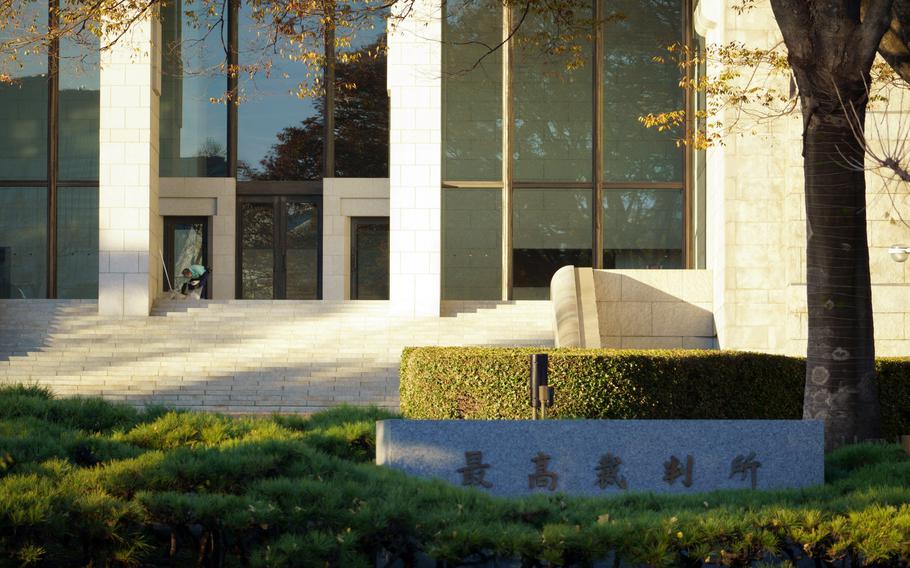Asia-Pacific
Japan Supreme Court rejects appeal by family of taxi driver beaten by Marines
Stars and Stripes December 18, 2024

The Supreme Court of Japan, in Tokyo, is led by Chief Justice Yukihiko Imasaki. (Akifumi Ishikawa/Stars and Stripes)
NAHA, Okinawa — The family of an Okinawan taxi driver assaulted by two Marines in 2008 has lost an appeal to the Supreme Court of Japan seeking additional compensation from the Japanese government.
Relatives of Munekazu Ura, who died of cancer in 2012, had appealed a 2022 Naha District Court decision that said the Okinawa Defense Bureau, an arm of the Japan’s Ministry of Defense, was not responsible for interest payments included in an award from a 2018 ruling in their case.
On Monday in Tokyo, a four-judge Supreme Court panel led by Judge Mamoru Miura upheld a 2023 Fukuoka High Court decision rejecting the family’s appeal, according to the Supreme Court’s website.
Ura’s family filed a 2017 lawsuit in Naha District Court seeking the equivalent of about $240,000 in damages from Marines Joseph Wayne Riddle and Reginald Crapps.
Riddle was a 20-year-old corporal and Crapps a 19-year-old private first class at the time of the incident.
Ura was assaulted early Jan. 7, 2008, in Okinawa city after picking up the pair, who were assigned to Marine Corps Air Station Futenma. Riddle hit the 59-year-old driver from the back seat with a liquor bottle while Crapps punched him in the face. They then chased him down and struck him with the bottle again. Ura suffered injuries to his head and neck, and his false teeth were knocked out.
Riddle was sentenced to 4½ years in prison with forced labor, while Crapps received three to four years with forced labor.
The court ruled in favor of the family on July 5, 2018, stating the incident caused Ura “injuries, depression and post-traumatic stress disorder.” The family was awarded more than $237,000, including 10 years of interest payments, according to court documents provided to Stars and Stripes on Tuesday by the family’s attorney, Yoichiro Hidaka.
The U.S. Foreign Claims Commission agreed to pay the family about $12,700, according to an April 26, 2019, letter signed by assistant claims officer Dale Sonnenberg and addressed to Hidaka and attorney Tsutomu Arakaki. The family signed the document in May of that year and received payment, according to the documents.
U.S. Forces Japan in an unsigned email Wednesday referred questions about the case to Japan’s Supreme Court.
According to the status of forces agreement that governs U.S. service members stationed in Japan, the United States must pay compensation on behalf of its military personnel if they have caused an accident or incident, even off duty, and are unable to pay.
The Special Action Committee on Okinawa agreement of 1996 requires the Japanese government pay the difference when the U.S. government’s payment “did not satisfy the full amount awarded by a final court judgment,” according to the Ministry of Foreign Affairs’ website.
The Okinawa Defense Bureau agreed to pay an additional $145,000 but declined to pay the $82,000 awarded in interest, according to court documents. The family filed suit again in 2022 in Naha District Court, seeking the full amount of the original award minus what the U.S. government paid.
The court ruled against the family, saying “there is no responsibility on the [Okinawa Defense Bureau] for the delay.”
Hidaka has asked an official with the Okinawa Defense Bureau to reconsider including the interest in its payment to the family, he said by phone Wednesday.
“The official said that it might be difficult,” he said.